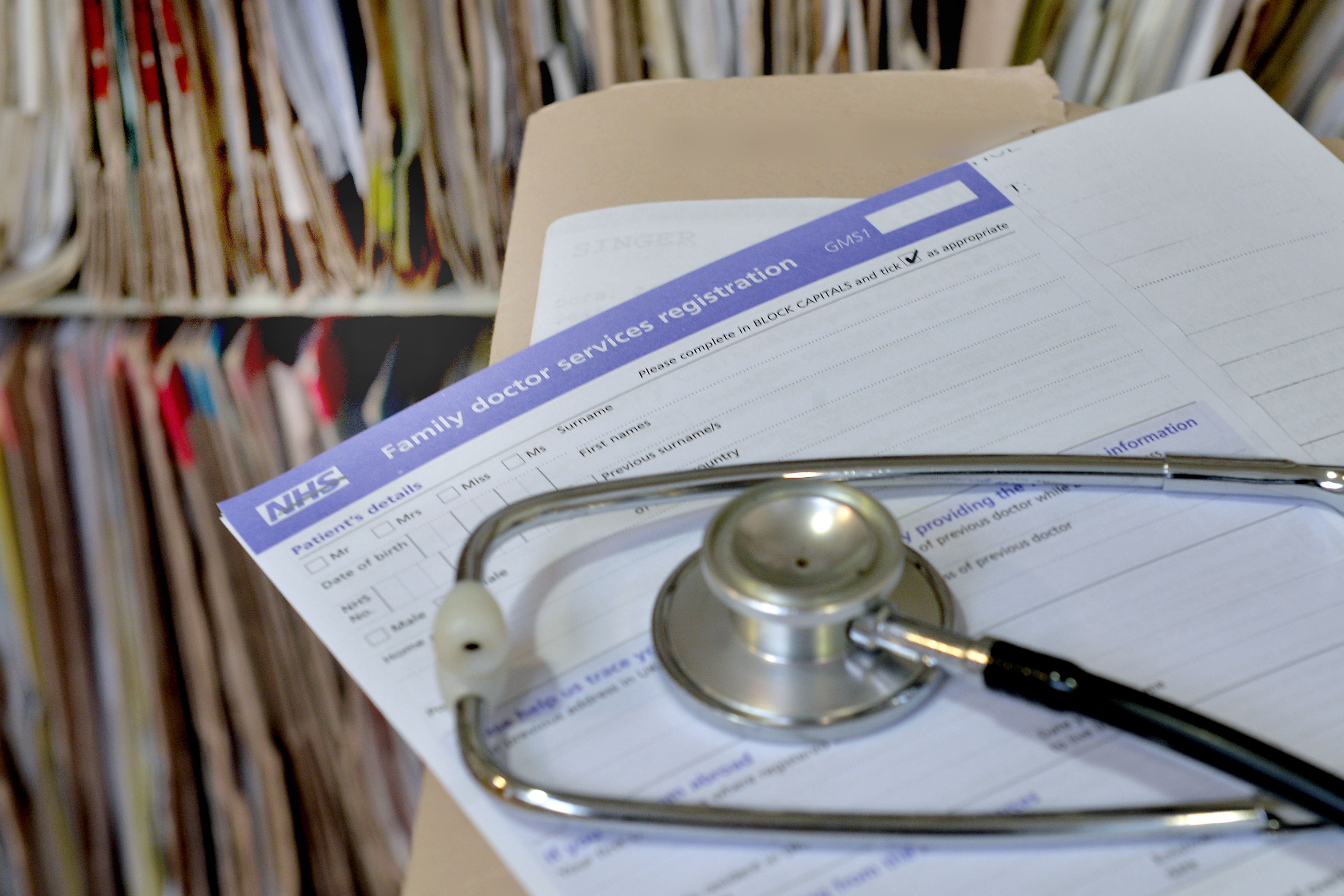GPs ‘in crisis’ as one in four fear surgery is in danger of closing
Experts warn GPs facing ‘insurmountable pressures’

GPs are facing “insurmountable pressures”, experts have said as they warned that the NHS “will not survive” without general practice.
A new report into GP pressures suggests one in four staff fear their practice is in danger of closing because of unmanageable workloads and rising demand.
The document, from the Royal College of GPs (RCGP), says general practice is “in crisis”, and makes a series of calls to help ease pressures and stop the growing number of GPs from quitting.
The report, shared exclusively with the PA news agency, says GPs are bracing for “winter-style pressures” well into spring and summer.
“The workload pressures in general practice over this winter have been immense, and high levels of patient demand are set to continue for some time,” the report authors wrote.
“General practice is in crisis. We cannot rely on short-term emergency funding pots over winter to try and paper over the cracks.
“Without a functioning primary care service, the NHS will fail.”
Speaking to PA, RCGP chair Professor Kamila Hawthorne said the situation on the ground is so intense that GPs themselves are requiring care for stress.
“I’ve certainly heard of colleagues of mine becoming so stressed during their days of work that they’re developing chest pain and needing to be seen themselves,” she said.
“If you’re seeing 40 to 60 patients a day and making that number of clinical decisions, it is extremely stressful and worrying because each one of those clinical decisions is important.”
The report makes a series of recommendations to Government about potential improvements, including better help for GPs to deal with surges in demand; additional work to “halt the decline in workforce”; and cutting red tape and “unnecessary box ticking” so GPs can “focus on patient care”.
It also calls for forthcoming changes – including the NHS workforce plan – to address pressures to “match the level of need”.
The Government has also faced calls to do more to retain staff.
Prof Hawthorne said: “We are seeing more patients than we’ve ever seen before, we are really busy and getting busier. And yet we have fewer doctors because GPs are leaving the profession due to the intolerable workload and workforce crisis that we’re under.
“So we’re now 843 fewer full-time equivalent GPs since 2019, and the numbers are going down and down and down. That’s all extremely worrying.”
She said as well as appointment numbers going up, complex cases are also rising.
“So that’s the picture that we have at the moment, with workload going up and GPs leaving the profession faster than they’re entering it, so we do have a crisis,” she added.
A previous RCGP poll of GPs found that 39% were seriously considering leaving the profession within the next five years. This could mean more than 22,000 GPs leaving the workforce, the college has previously estimated.
In the latest poll, 27% of 2,649 UK general practice staff surveyed by the RCGP between December and January said their practice was at risk of closing.
Nine in 10 of this group said the reasons were unmanageable workload and rising demand, while others expressed concerns about staff leaving the sector.
Prof Hawthorne continued: “Without general practice, the NHS won’t survive.
“We see 90% of the patients that come to the NHS, and we deal with most of what people need from the health service.
“So if we’re not there, that secondary care services will just be completely overwhelmed.
“They say an army marches on its stomach while the NHS marches on its GPs.”
On winter pressures, the report authors said: “General practice is under such year-round strain that when winter illnesses inevitably lead to increased demand, the system can’t cope.”
The RCGP said the Department of Health and Social Care needs to consider longer-term investment and not a “short-term funding pot”.
The report authors concluded: “Unless significant action is taken in the short-medium term, pressures will continue to intensify for those still in practice, creating a vicious cycle whereby increasing numbers of GPs continue to leave the workforce due to insurmountable pressures.
“Urgent action is needed to break this cycle, supporting today’s GPs to stay in practice while we continue to train tomorrow’s GPs.”
A Department of Health and Social Care spokesperson said: “There are 400 more doctors in general practice compared to a year ago and we are delivering almost 120,000 extra appointments every day.
“Last year a record number of numbers accepted a place on GP training, and we’re working with our partners to continue to boost recruitment, improve retention, and encouraging doctors to return to practice.”
Join our commenting forum
Join thought-provoking conversations, follow other Independent readers and see their replies
Comments


Bookmark popover
Removed from bookmarks